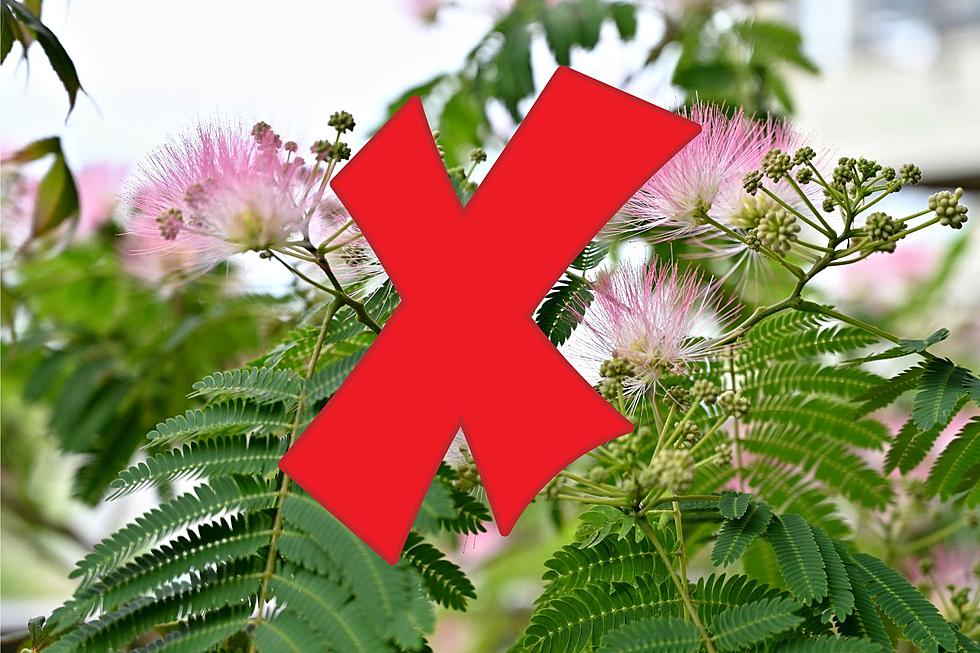
Illinois Homeowners Beware: This Invasive Worm Will Kill Your Lawn
Generally, worms are wonderful friends to have in your garden, but that isn't the case with the invasive species of jumping worms that have infiltrated dozens of Illinois counties.
Worms are (Generally) Wonderful
You "average" worm - there are actually several different kinds including those that hang out in leaf litter, and those that burrow vertically into the ground - are really good for our ecosystem. In fact, according to the USDA, they add a number of vitamins and nutrients to the soil like nitrogen, phosphorous, and potassium. The USDA says worms,
- Improve soil stability, air porosity and moisture holding capacity by burrowing and aggregating soil;
- Turn soil over and may reduce the incidence of disease by bringing deeper soil to the surface and burying organic matter;
- Improve water infiltration by forming channels and promoting soil aggregation;
- Improve root growth by creating channels lined with nutrients for plant roots to follow.

Worms are Excellent Composters
Worms make excellent composters and when added to garbage, can create incredibly nutrient-rich fertilizer, according to the Department of Environmental Management in neighboring Indiana.
They will turn the garbage into some of the best fertilizer on earth known as worm castings or vermi-compost. This is a fascinating, fun, and easy way to recycle your organic kitchen waste. Worm composting requires very little work, produces no offensive odors, and helps plants to thrive. - Indiana Dept. of Environmental Management
Invasive Jumping Worms in at Least 47 Counties in Illinois
While your average, run-of-the-mill worm is your friend in the garden, there is an invasive species that is not a friend but a foe. The invasive Asian jumping worms, sometimes called Alabama jumpers, crazy worms, or snake worms due to the way they move, have been confirmed in at least 47 Illinois counties and are suspected to have infiltrated at least three more, according to Illinois University.
Invasive Jumping Worms and the Damage They Cause
These garden pests will eat up all of the organic material at the surface of the soil destroying lawns, gardens, farmland, and forests. The waste left behind looks like coffee grounds and offers no nutritional value to plants. They also do not aid in air and water flow for the soil like regular worms do.
Ecologists worry about the effect jumping worms are going to have on natural areas because these voracious eaters chew up everything on the surface, like mulch, beneficial fungi, and even plant roots, stripping the nutrients killing plants and leaving behind dried up soil that resembles coffee grounds. In home landscaping, similar effects will be seen. Soil will be drier and plants will struggle. Currently, there is no known way to control jumping worms. Prevention is the key. - Illinois University
How Did Jumping Worms Get to Illinois?
These worms are not native to Illinois and they also do not migrate. That means that humans are primarily responsible for the jumping worms that now call Illinois home. At one time, they were sold for fishing and composting. Experts say that the worms have likely spread through the transfer of soil, compost, or plants from other places.
How to Spot Invasive Asian Jumping Worms
If you suspect that you might have jumping worms, the University of Illinois recommends that you use a solution made from 1/4 cup of ground yellow mustard and one gallon of water. When poured onto the ground, the mixture will irritate the worms, causing them to make their way to the surface. They can be identified by their "trashing behavior and snake-like crawling."
How to Stop the Spread of Jumping Worms
Gardeners should avoid sharing soil and compost, as well as avoid bringing home potted plants from unknown sources. Additionally, municipal leaf collections can also contribute to the spread.
Since jumping worms live in the soil, they can be spread in mulch, potting mixes or potted plants. Raking or blowing leaves can move and concentrate earthworms or their egg sacks, called cocoons. Some municipalities collect fallen leaves from local residents, and then return it in the form of compost. This too can spread the invasive worms. - USDA Forestry Services
"Solarizing" Can Kill Invasive Asian Jumping Worms
At Purdue University in Indiana, they recommend a process known as solarizing that can be used to rid your soil of unwanted guests. It involves wrapping soil or compost in dark plastic or tarp on a sunny day to raise the temperature of the soil. Learn more about the solarizing process here.
What to Do If You Spot an Invasive Species in Illinois
If you spot an invasive jumping worm where you live in Illinois, you should report your sighting to your nearest University of Illinois Extension office.
More Weird and Unusual Midwest WIldlife
The Midwest is no stranger to weird and unusual critters and creatures like the cannibalistic Dragonhunter and the moth that is under federal quarantine. Let's not forget the invasive fish that dates back to prehistoric times. You will definitely want to check out photos captured from this Indiana trail cam too.
Counties with the Most Farmland in Illinois
Gallery Credit: Stacker
More From WKDQ-FM









